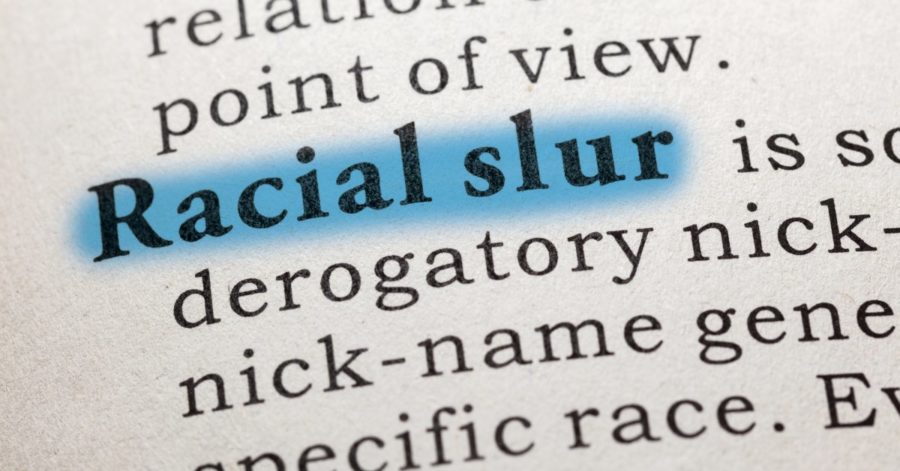Suza: Racial slurs have the potential to endanger lives
July 12, 2020
Editor’s Note: This is the eleventh of a collective series conducted by Walter Suza.
I can still picture him – a tall, slender white man in his early 20s. He yelled the n-word at me, followed by “go away from here.”
This incident happened 15 years ago, but I can still feel the impact of the racial slur – and the pain in my heart.
For the racial and ethnic minorities in the United States, it is almost guaranteed that one will be subjected to racial slurs. Even celebrities such as Will Smith have had to bear the brunt of racial slurs.
Racial slurs are fueled by racism. They cause trauma. And their impact lingers for many years.
Sadly, children are also participating in propagating racial slurs.
Amy Thompson, who is now in her 30s, shares her experience with the n-word: “I was 5 years old the first time I heard the n-word. I had no idea what it meant, but I remember that everyone ‘ooh’ed’ and ‘um’ed’ as I sat confused.”
KCCI News reported that 14-year-old Mallory Gosch from Cresco, Iowa, “has been called a slave and the n-word at school, and that none of her friends stood up for her when she was bullied.”
I am perplexed as to why kids would think it is OK to use racial slurs. Where do they learn this behavior?
I am afraid that adults are responsible for enabling the use of racial slurs.
As the United States deals with the painful reality that almost 135,000 people have died from COVID-19, our nation’s leader has chosen to name the disease “kung flu,” a racial slur intended for Asians and Asian Americans.
Coronavirus is a real and present danger to the entire world, yet Asian and Black Americans are experiencing increased discrimination during the pandemic. This is also not OK.
Michael Lofthouse, the CEO of Solid8, had no right to subject Raymond Orosa and his Asian American family to racial slurs.
Jaycebelle Tadena did not deserve to be subjected to swastikas and racial slurs because she asked her neighbors to wear face coverings during this pandemic.
The use of racial slurs has spread across the nation and even in the highly regarded institutions such as West Point Military Academy, where spoken racial slurs against Asian and Black cadets are said to be running rampant.
It is also concerning to me that hundreds of young people inside a church in Phoenix cheered in unison after hearing the president utter the kf-word. I wonder how God must have felt after hearing the kf-word echo across the house of worship.
We can do better than this.
Subjecting people to such microassaults is not funny. It is not right to use the kf-word that offends and hurts our fellow humans.
The victims of the kf-word are my students and colleagues. The victims of the kf-word are my kids’ friends. The victims of the kf-word are parents who have welcomed my kids into their homes.
Those within the president’s inner circle have defended the use of the kf-word. And this makes them complicit in promoting the indefensible behavior.
Racial slurs do not have a place in the United States. We all have an obligation to intervene to limit their use.
According to the Anti-Defamation League, “When people or institutions treat lower-level biased attitudes and language as acceptable with silence or non-action, the bias keeps moving up the pyramid to acts of discrimination and possibly violence.”
The public display of symbols of hate, including racial slurs, makes people feel unwelcome and has the potential to endanger lives.
In his opinion article, “The ominous symbolism of the noose,” Jack Shuler writes: “A few weeks after moving into a predominantly white neighborhood in Noblesville, Ind., an African American family found a noose in their yard.”
Last month, a Black family in Marion, Iowa, woke up to find racial slurs spray painted on their home.
It will take our collective effort to end these racist acts. It begins with individual work to develop our awareness about racism and it’s followed by our actions to hold each other accountable for our behaviors.
We must also work at the family level by teaching our kids how to treat others — through actions that demonstrate love instead of hate.
I believe, together, White, Black and Brown, we can defeat racism to help illuminate the path for the United States to become a more perfect union.
Let us start with words and actions that show our neighbors that we care. This is the way we all can love our neighbors as we love ourselves.

















